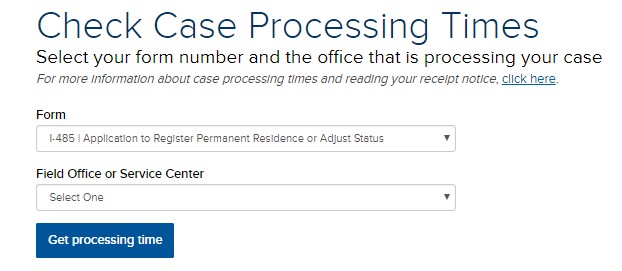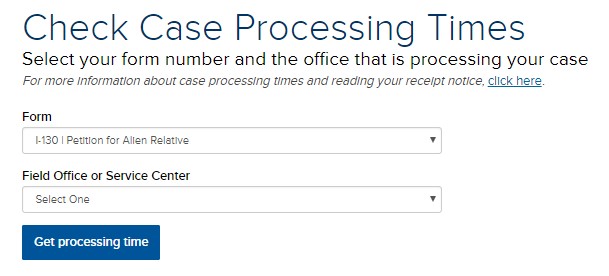General Q&A on I-130 Immigrant Visas

What documents are typically required for a Family-based Immigration petition?
- USCIS Form I-130, Petition for Alien Relative
- USCIS Form I-130A, Supplemental Information for Spouse Beneficiary (if the case involves an alien spouse)
- Passport-style photographs for the U.S. citizen and alien relative
- Marriage Certificate and/or License (if applicable)
- Divorce Decrees (if applicable)
- Birth Certificates (and English translations)
- Government filing fees
- Evidence of family relationship
- Evidence of ability to financially support the alien relative
Additional forms and supporting documents may be required depending on whether the alien relative is currently in the U.S. or abroad.
Additional documents such as an immigration physical/exam, police letters, court records, etc. may be required. An experienced immigration attorney can help you determine which documents are required for your case.
Can my family member come to the U.S. to live while the I-130 immigrant petition is pending?
It depends on a variety of factors. However, in general, if your family member is already in the U.S. on a different visa (i.e. B-2 visitor visa, F-1 student visa, H-1B nonimmigrant worker, etc.), s/he can remain in the U.S. and can travel back and forth to the U.S. while your visa petition is pending. However, if your family member is currently abroad, s/he may have problems trying to enter the U.S. An experienced immigration attorney can help your family member enter the U.S., while the immigrant petition is pending with U.S. Citizenship and Immigration Services (USCIS).
What is the process for obtaining a family-based visa and/or green card?
The process is different for an alien relative that is inside the United States versus an alien relative that is outside of the U.S.
In general, if the family member is outside of the U.S.:
- First, the U.S. citizen or Lawful Permanent Resident (LPR) will file form I-130, Immigrant Petition for Alien Relative with the U.S. Citizenship and Immigration Services (USCIS).
- Second, the alien relative will submit a visa application and supporting documents to the National Visa Center (NVC).
- Third, the alien relative will attend a visa interview at a U.S. consulate or embassy abroad to obtain a visa.
In general, if the family member is inside of the U.S. and qualifies as an immediate relative:
- First, the U.S. citizen will file the I-130, Immigrant Petition for Alien Relative and the alien relative will file the I-485, Application to Adjust Status (and related forms and supporting documents) with the U.S. Citizenship and Immigration Services (USCIS).
- Second, the alien relative will attend a biometrics appointment. The alien relative will go to a local USCIS office to submit their fingerprints and pictures for a Federal Bureau of Investigation (FBI) background check.
- Third, the U.S. citizen and alien relative will attend an adjustment of status interview at a local USCIS field office.
I am a U.S. citizen and my spouse is currently in the U.S. How long will it take before my spouse receives a Permanent Resident Card (“Green Card”)?
In general, if your spouse entered the country with inspection (with a visa or Border Crossing Card, or through the Visa Waiver Program (VWP)), the processing time will depend on your local USCIS Field Office. The appropriate Field Office will be the field office that is located where you are currently residing.
You can check the local processing times, by visiting https://egov.uscis.gov/processing-times/, selecting Form I-485, Application to Register Permanent Residence or Adjust Status from the first drop-down menu, and selecting the appropriate city and state from the second drop-down menu.
I am a U.S. citizen and my spouse abroad. How long will it take before my spouse receives a Permanent Resident Card (“Green Card”)?
In general, if your spouse is abroad, the processing time will depend on the USCIS Service Center that is handling your case. You must submit the I-130, Petition for Alien Relative to the corresponding office based on the state in which you reside.
You can check the local processing times, by visiting https://egov.uscis.gov/processing-times/, selecting Form I-130, Petition for Alien Relative from the first drop down menu, and selecting the appropriate USCIS Service Center from the second drop down menu.
I am a Lawful Permanent Resident (“Green Card holder”) and my spouse is currently in the U.S. How long will it take before my spouse receives a Permanent Resident Card (“Green Card”)?
If your spouse is in the U.S., you can file form I-130, Petition for Alien Relative for your spouse, but your spouse will not be able to file form I-485, Application to Adjust Status. Spouses of Lawful Permanent Residents (“Green Card holders”) are not considered “immediate relatives” for immigration purposes. Instead spouses of Green Card holders must wait for a visa to become available.
Once the I-130 petition is received, the receipt date is the alien relative’s “priority date.” Each year, the U.S. government allows only a certain number of non-immediate relatives to enter the U.S. Only when the alien relative’s priority date is current, can the alien relative apply for a visa to enter the U.S. The priority dates are updated monthly and can be found on the U.S. Department of State’s website at https://travel.state.gov. Please search for U.S. visa bulletin.
As of March 1, 2019, the priority dates for spouses (F2A category) of Green Card holders are as follows:
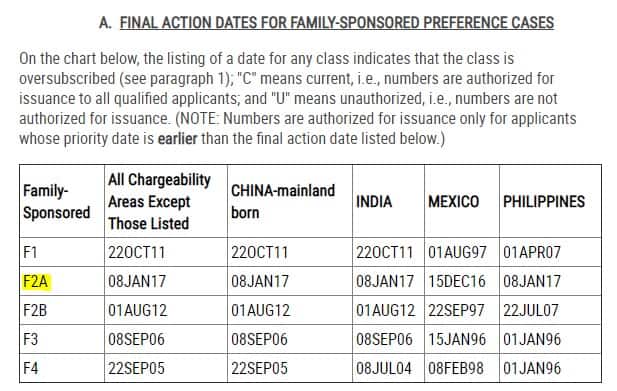
Citizens of certain countries (i.e. China, India, Mexico, Philippines) may have to wait longer for a visa to become available.
If your spouse happens to be in the U.S., s/he will have to maintain his/her lawful immigration status at all times until the priority date is current. Once the priority date is current, the alien relative spouse can file form I-485, Application to Adjust Status.
I am a Lawful Permanent Resident (“Green Card holder”) and my spouse is currently abroad. How long will it take before my spouse receives a Permanent Resident Card (“Green Card”)?
If your spouse is abroad, you can file form I-130, Petition for Alien Relative for your spouse, Spouses of Lawful Permanent Residents (“Green Card holders”) are not considered “immediate relatives” for immigration purposes. Instead spouses of Green Card holders must wait for a visa to become available.
Once the I-130 petition is received, the receipt date is the alien relative’s “priority date.” Each year, the U.S. government allows only a certain number of non-immediate relatives to enter the U.S. Only when the alien relative’s priority date is current, can the alien relative apply for a visa to enter the U.S. The priority dates are updated monthly and can be found on the U.S. Department of State’s website at https://travel.state.gov. Please search for U.S. visa bulletin.
As of March 1, 2019, the priority dates for spouses (F2A category) of Green Card holders are as follows:
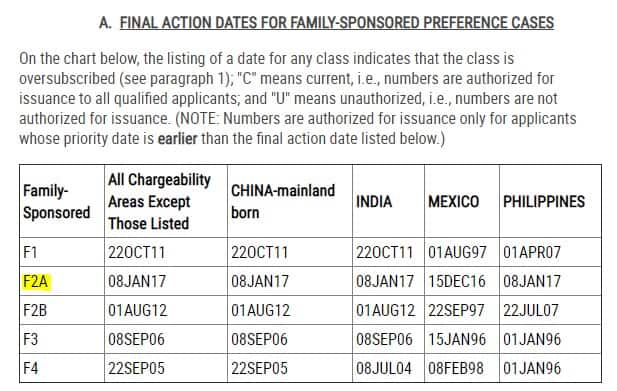
Citizens of certain countries (i.e. China, India, Mexico, Philippines) may have to wait longer for a visa to become available.
I am a U.S. citizen and my child is currently in the U.S. How long will it take before my child receives a Permanent Resident Card (“Green Card”)?
In general, if your child entered the country with inspection (with a visa or Border Crossing Card, or through the Visa Waiver Program (VWP)), the processing time will depend on your local USCIS Field Office. The appropriate Field Office will be the field office that is located where you are currently residing.
You can check the local processing times, by visiting https://egov.uscis.gov/processing-times/, selecting Form I-485, Application to Register Permanent Residence or Adjust Status from the first drop down menu, and selecting the appropriate city and state from the second drop down menu.
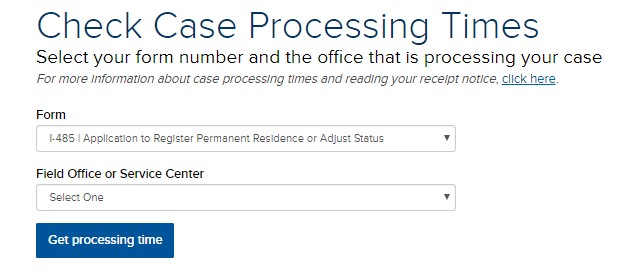
I am a U.S. citizen and my child abroad. How long will it take before my child receives a Permanent Resident Card (“Green Card”)?
In general, if your spouse is abroad, the processing time will depend on the USCIS Service Center that is handling your case. You must submit the I-130, Petition for Alien Relative to the corresponding office based on the state in which you reside.
You can check the local processing times, by visiting https://egov.uscis.gov/processing-times/, selecting Form I-130, Petition for Alien Relative from the first drop down menu, and selecting the appropriate USCIS Service Center from the second drop down menu.
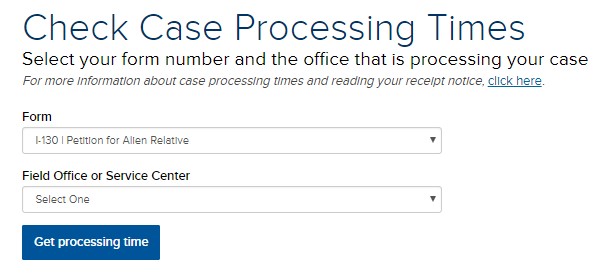
I am a Lawful Permanent Resident (“Green Card holder”) and my child is currently in the U.S. How long will it take before my child receives a Permanent Resident Card (“Green Card”)?
If your child is in the U.S., you can file form I-130, Petition for Alien Relative for your child, but your child will not be able to file form I-485, Application to Adjust Status. Children of Lawful Permanent Residents (“Green Card holders”) are not considered “immediate relatives” for immigration purposes. Instead children of Green Card holders must wait for a visa to become available.
Once the I-130 petition is received, the receipt date is the alien relative’s “priority date.” Each year, the U.S. government allows only a certain number of non-immediate relatives to enter the U.S. Only when the alien relative’s priority date is current, can the alien relative apply for a visa to enter the U.S. The priority dates are updated monthly and can be found on the U.S. Department of State’s website at https://travel.state.gov. Please search for U.S. visa bulletin.
As of March 1, 2019, the priority dates for unmarried children under 21 years old (F2A category) of Green Card holders are as follows:
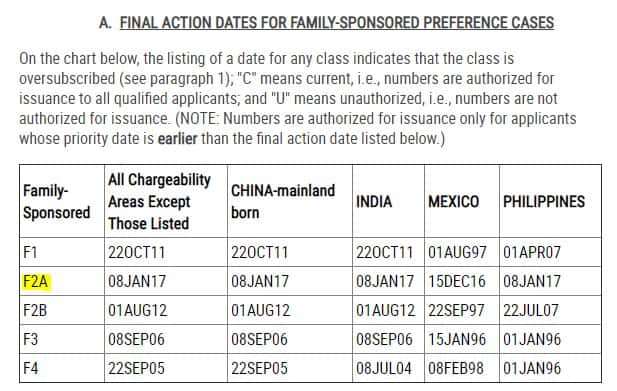
Citizens of certain countries (i.e. China, India, Mexico, Philippines) may have to wait longer for a visa to become available.
If your child happens to be in the U.S., s/he will have to maintain his/her lawful immigration status at all times until the priority date is current. Once the priority date is current, the alien relative spouse can file form I-485, Application to Adjust Status.
Please note that unmarried children of Green Card holders that are over 21 years of age are in the F2B category, which has a longer waiting period. Additionally, Green Card holders cannot file immigrant petitions for married children.
I am a Lawful Permanent Resident (“Green Card holder”) and my child is currently abroad. How long will it take before my child receives a Permanent Resident Card (“Green Card”)?
If your child is abroad, you can file form I-130, Petition for Alien Relative for your child. Children of Lawful Permanent Residents (“Green Card holders”) are not considered “immediate relatives” for immigration purposes. Instead children of Green Card holders must wait for a visa to become available.
Once the I-130 petition is received, the receipt date is the alien relative’s “priority date.” Each year, the U.S. government allows only a certain number of non-immediate relatives to enter the U.S. Only when the alien relative’s priority date is current, can the alien relative apply for a visa to enter the U.S. The priority dates are updated monthly and can be found on the U.S. Department of State’s website at https://travel.state.gov. Please search for U.S. visa bulletin.
As of March 1, 2019, the priority dates for unmarried children under 21 years old (F2A category) of Green Card holders are as follows:
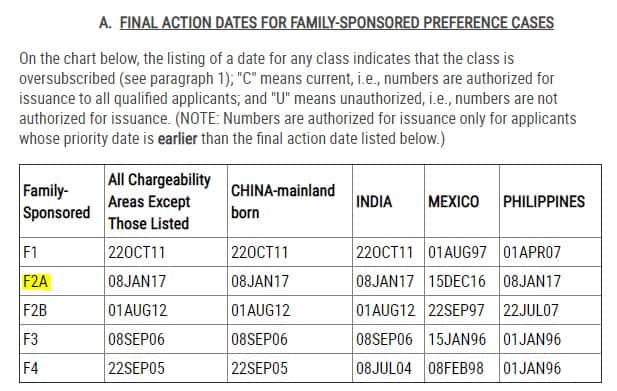
Citizens of certain countries (i.e. China, India, Mexico, Philippines) may have to wait longer for a visa to become available.
Please note that unmarried children of Green Card holders that are over 21 years of age are in the F2B category, which has a longer waiting period. Additionally, Green Card holders cannot file immigrant petitions for married children. This means that if your child gets married after you file an I-130 immigrant petition for him/her, the petition is automatically deemed cancelled/revoked/withdrawn/void.
I am a U.S. citizen and my sibling (sister or brother) is currently in the U.S. How long will it take before my sibling receives a Permanent Resident Card (“Green Card”)?
If your sibling is in the U.S., you can file form I-130, Petition for Alien Relative for your sibling, but your sibling will not be able to file form I-485, Application to Adjust Status. Siblings of U.S. citizens are not considered “immediate relatives” for immigration purposes. Instead siblings of U.S. citizens must wait for a visa to become available.
Once the I-130 petition is received, the receipt date is the alien relative’s “priority date.” Each year, the U.S. government allows only a certain number of non-immediate relatives to enter the U.S. Only when the alien relative’s priority date is current, can the alien relative apply for a visa to enter the U.S. The priority dates are updated monthly and can be found on the U.S. Department of State’s website at https://travel.state.gov. Please search for U.S. visa bulletin.
As of March 1, 2019, the priority dates for siblings (F4 category) are as follows:
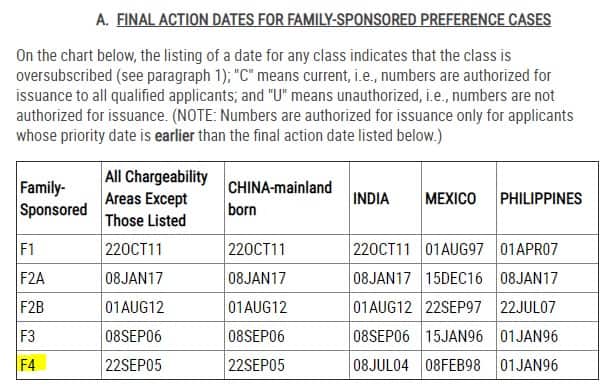
Citizens of certain countries (i.e. China, India, Mexico, Philippines) may have to wait longer for a visa to become available.
If your sibling happens to be in the U.S., s/he will have to maintain his/her lawful immigration status at all times until the priority date is current. Once the priority date is current, the alien relative sibling can file form I-485, Application to Adjust Status.
Please note that Green Card holders cannot file immigrant petition for siblings.
I am a U.S. citizen and my sibling (sister or brother) abroad. How long will it take before my sibling receives a Permanent Resident Card (“Green Card”)?
If your sibling is abroad, you can file form I-130, Petition for Alien Relative for your sibling. Siblings of U.S. citizens are not considered “immediate relatives” for immigration purposes. Instead siblings of U.S. citizens must wait for a visa to become available.
Once the I-130 petition is received, the receipt date is the alien relative’s “priority date.” Each year, the U.S. government allows only a certain number of non-immediate relatives to enter the U.S. Only when the alien relative’s priority date is current, can the alien relative apply for a visa to enter the U.S. The priority dates are updated monthly and can be found on the U.S. Department of State’s website at https://travel.state.gov. Please search for U.S. visa bulletin.
As of March 1, 2019, the priority dates for siblings (F4 category) are as follows:
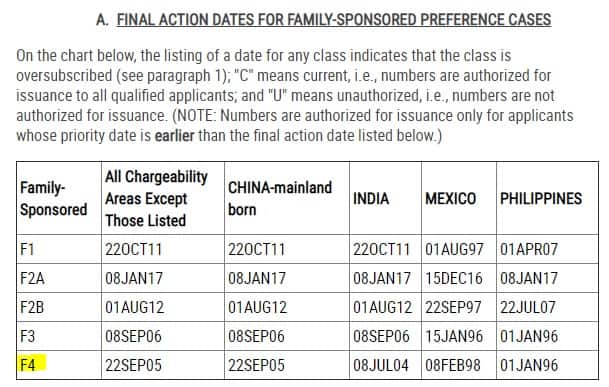
Citizens of certain countries (i.e. China, India, Mexico, Philippines) may have to wait longer for a visa to become available.
Please note that Green Card holders cannot file immigrant petition for siblings.
I am a Lawful Permanent Resident (“Green Card holder”) and my sibling (sister or brother) is currently in the U.S. How long will it take before my sibling receives a Permanent Resident Card (“Green Card”)?
Unfortunately, Green Card holders cannot file immigrant petition for siblings.
I am a Lawful Permanent Resident (“Green Card holder”) and my sibling (sister or brother) is currently abroad. How long will it take before my sibling receives a Permanent Resident Card (“Green Card”)?
Unfortunately, Green Card holders cannot file immigrant petition for siblings.
I am a U.S. citizen and my parent (mother or father) is currently in the U.S. How long will it take before my parent receives a Permanent Resident Card (“Green Card”)?
In general, if your parent (mother or father) entered the country with inspection (with a visa or Border Crossing Card, or through the Visa Waiver Program (VWP)), the processing time will depend on your local USCIS Field Office. The appropriate Field Office will be the field office that is located where you are currently residing.
You can check the local processing times, by visiting https://egov.uscis.gov/processing-times/, selecting Form I-485, Application to Register Permanent Residence or Adjust Status from the first drop down menu, and selecting the appropriate city and state from the second drop down menu.
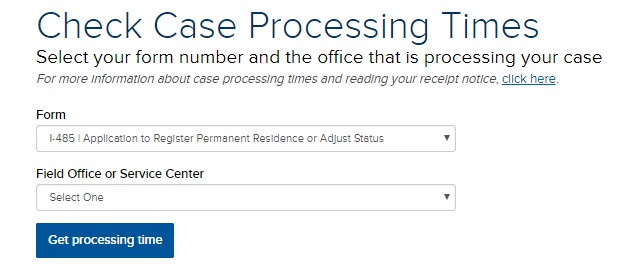
I am a U.S. citizen and my parent (mother or father) abroad. How long will it take before my parent receives a Permanent Resident Card (“Green Card”)?
In general, if your spouse is abroad, the processing time will depend on the USCIS Service Center that is handling your case. You must submit the I-130, Petition for Alien Relative to the corresponding office based on the state in which you reside.
You can check the local processing times, by visiting https://egov.uscis.gov/processing-times/, selecting Form I-130, Petition for Alien Relative from the first drop down menu, and selecting the appropriate USCIS Service Center from the second drop down menu.
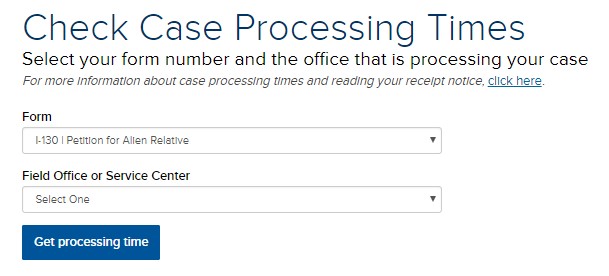
I am a Lawful Permanent Resident (“Green Card holder”) and my parent (mother or father) is currently in the U.S. How long will it take before my parent receives a Permanent Resident Card (“Green Card”)?
Unfortunately, Green Card holders cannot file immigrant petition for parents.
I am a Lawful Permanent Resident (“Green Card holder”) and my parent (mother or father) is currently abroad. How long will it take before my parent receives a Permanent Resident Card (“Green Card”)?
Unfortunately, Green Card holders cannot file immigrant petition for parents.
How can I check the status of my visa petition?
To check the status of your I-130, Petition for Alien Relative, you can visit www.uscis.gov or call (281) 777-1236.
To check the status of your visa application, you will need to contact the National Visa Center. Their contact information is listed here:
https://travel.state.gov/content/visas/en/immigrate/nvc/nvc-contact-information.html
If you are a client at the Law Office of David Nguyen, PC, we will scan all of your notices and will email and/or text you with the information. This way, you are always informed.
How do I appeal the denial of my petition or application for a family-based visa?
If your I-130, Petition for Alien Relative is denied, you can file Form I-290B, Notice of Appeal or Motion with U.S. Citizenship and Immigration Services (USCIS). You will have to pay the filing fee and submit new evidence to support your case.
For more information on Documents for Family Immigration Petition, a free consultation is your next best step. Get the information and legal answers you are seeking by calling (281) 777-1236 today.
To avoid having your case potentially denied, paying additional filing fees for the same application/petition, and/or spending months or years for a decision, please contact our office so we can help you with your case.

Call For A Free Consultation*
(281) 777-1236




